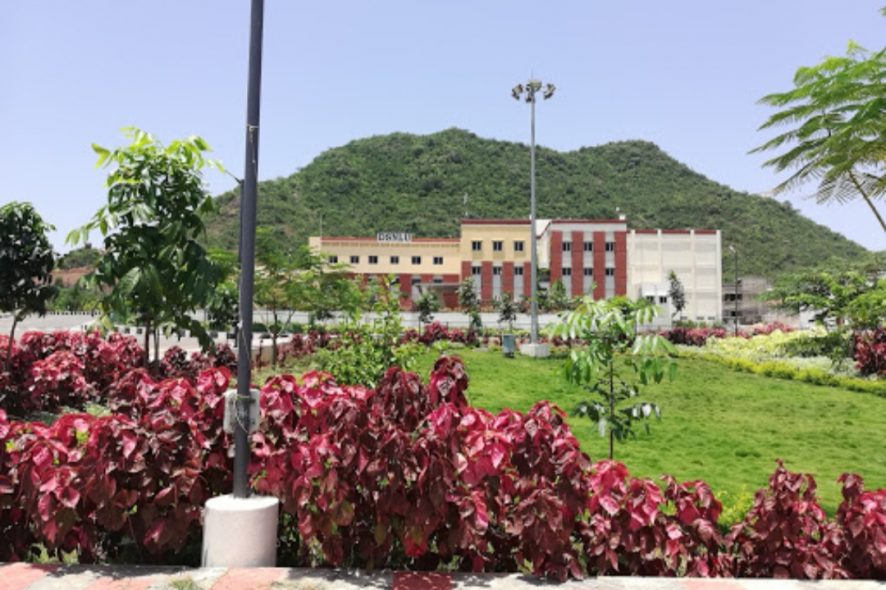About the Conference
The Conference is unequivocally the first of its kind in India, relating to the work of Kant. This two-day conference invites participants from across nations and disciplines, to brainstorm on Kant’s work, thought and philosophy.
Themes
1. CONSTITUTIONAL MORALITY AND KANTIAN JUSTICE: The concept of the Constitution is not an idea of positive law, but a Vernunftidee [an idea of reason], that is, it is not subject to written law, or in Kant’s terms, empirical (or statutory) or positive law.
- Individual’s Rights and Enforcement
- Moral and Legal Limits of Privacy
- The necessity of Constitution in Democracy
- Constitutional vs. Parliamentarian Laws
2. SCIENCE, TECHNOLOGY AND KANT’S EPISTEMOLOGY: Kant’s pure rational cognition that is generated from concepts with metaphysics, contends that science requires a metaphysics of nature. The use of technology is permissible only when it finds its place in the light of culture and territory. Kant believed that philosophy is the “narrow gate” that connects to the world at large.
- Metaphysics as a tool for understanding science and its basic construct
- Categorical Imperative and Transcendentalism in 21st century
- Kant’s influence on Contemporary Education System
- Education as a tool to transform Animal Behaviour to Human Resolve
3. KANT AND NATURE: An organized product of nature is that in which all the parts are mutual ends and means. Kant advocated Doctrine of Virtue that one should not be cruel to animals and destroy the flora. Humans have direct duties only to themselves and other human beings. Kant has also emphasised on the integral role that Ethics and Morality plays on Human Determination.
- Kant on Human Nature
- Duties regarding Non-Human Nature
- Cruelty towards Animals
- Morality to overcome Human Evils
4. KANT AND PERSONAL JUSTICE: Considering a person as an object to satisfy the appetite of a person is a degradation of human nature. Immanuel Kant in his metaphysics of morals came out with a theory of property rights. His assertions on the Universal principle of right led to discussions on the property rights of individuals.
- Private Property and State Intervention
- Kant and Romantic Blending of Spouses
- Property Relations (including IP)
- Ratification of Monogamy in Marriage
5. KANT AND CRIMINAL JUSTICE: Better the whole people perish than injustice be done. Kant states that guilt is the necessary condition for the infliction of punishment. He also added that punishment of the innocent is conceptual and moral pathology. It is largely to avoid such a punishment that Kant inveighs against private revenge, vigilantism, war, and any other activity, which allows a disputant to judge his own case and punish according to his own biased decision.
- Justice under Criminal law
- Judicial Punishment
- Utilitarian Theory of Punishment
- Penal Philosophy
6. KANT AND INTERNATIONAL RELATIONS: Kant is hailed as the greatest of all theorists in the field of International Relations (IR), his
theories provide a lasting effect in the understanding of IR in the modern context.
- Universal Principles of Justice, Morality, Liberty and Equality
- Perpetual Peace through Abolishing War
- Contemporary Theories of IR
- Liberal Societies
Guidelines for Authors
- The Research Papers shall have a minimum of 3000 to maximum of 6000 words.
- Co-Authorship is allowed. There can be a maximum of 2 Authors for a paper.
- The authors can submit Research Papers, Articles or Case Comment complying to the themes.
- Papers shall be presented in English only.
- Authors are invited to submit the title of the paper, abstracts and key words at dsnlukant@dsnlu.ac.in.
- Papers shall be reviewed and selected subject to the approval of the Editorial Committee.
- The submission must be in .doc or .docx format.
- The main text should be in Font: Times New Roman and Font Size: 12. (Line spacing:1.5).
- The Footnotes should be in Font Style: Times New Roman and Font Size: 10. (Line Spacing:1.0).
- One line gap must be maintained between all paragraphs and headings (Line Spacing: 2.0).
- Citation Style should be Bluebook 20th Edition.
- Justified Alignment should be maintained throughout the submission.
- All paragraphs must begin with a one-inch indent.
- All hyperlinks must be in black colour and not be underlined.
- Organisers have all rights reserved with respect to Guidelines, Publication and Submissions.
Location
Damodaram Sanjivayya National Law University, NYAYAPRASTHA, Sabbavaram, Visakhapatnam-531035, Andhra Pradesh.
Registration Fee
Registration for Indian Authors:
- Without Accommodation: INR 1000
- With Accommodation: INR 3500
Registration for Foreign Authors
- Without Accommodation: $ 75
- With Accommodation: $125
Moderate and Limited Accommodation Available on First Come, First Serve.
Payment Details:
Registrar, Damodaram Sanjivayya National Law University
BANK NAME: Andhra Bank
BRANCH: Sabbavaram
A/c No.: 283710100024089
IFSC Code: ANDB0002837
List of Hotels for Self-Arrangement
Transportation facility from these hotels will be provided by the University.
Important Dates
Submission of full paper: On or before 23.59 hrs, 30th September, 2019
Date of Conference: 14 &15 December, 2019
*Abstract may be sent on or before 16 July, 2019 for our reference.
Contact
E-Mail ID dsnlukant@dsnlu.ac.in
Convener
Dr. Nandini C.P. +91- 9949221603, Associate Professor of Law.
Co-conveners:
- Mr. P. Bayola Kiran. +91-9032213683, Assistant Professor of Law.
- Mr. Zain Saleh. +91-9849476688, Assistant Professor of Law.
Student Coordinators:
- Anjani Harika +91-9080400195
- Mrudula Ilapakurthy +91-8247603152






